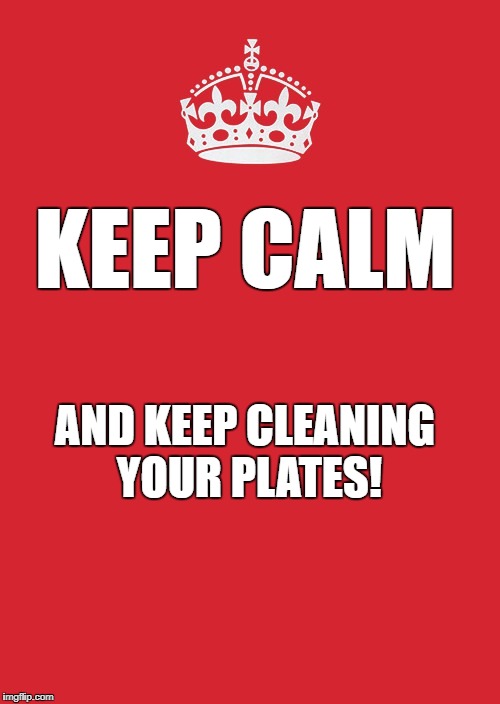Like it or not, we spend a major portion of our life at work. In fact, some even see their colleagues more than their family members! Since we spend a lot of time with our colleagues, we should manage our professional life well, and make sure we don’t step on anyone’s toes!
Here are some advice from other Malaysians on how to improve social etiquette at work.
Bad colleagues stink! (literally)

Lavania, an entrepreneur, used to worked as a journalist. She can tolerate it when her colleagues bring pungent foods, but they crossed the line on one occasion. He brought durian to the office, and kept it inside the public fridge!
She politely confronted him about it, and he told Lavania that he had stored the leftover durian in the fridge, since he couldn’t finish it in one sitting.
Lavania understood where he’s coming from, but explained to him courteously that not everyone loves durian. Also, she pointed out that the pungent smell of the durian will certainly affect other people’s food as well.
| Bonus: While the original point of this paragraph was to advise you to be considerate of your colleagues by not offending their sense of smell, Lavania is a great example on how to manage a potentially tricky encounter. She was tactful and polite when confronting her colleague, diffusing a potentially stressful situation. |
Meanwhile, another interviewee, Michelle, who is an operations analyst, said she can’t decide who’s worse – colleagues who wear too much perfume, or colleagues who don’t use perfume at all.
Ironically, those who wear too much perfume are usually men, and they can be difficult to confront since their habit is hardwired in them. On the other hand, there are those with strong body odour, and who do nothing about it, which are equally as bad.
Michelle would usually tell them nicely if she was close to them. If she wasn’t, Michelle and her other colleagues would try a subtler way, such as pool their money together and buy a perfume as a birthday gift!
Eat orderly, and clean up properly

Based on his own personal experience, Kamarul said that the number one thing which you can do to improve your social etiquette at work is by making sure you have good eating habits. This includes not munching loudly, and not talking while eating.
Doing any of these shows a lack of manners, something Kamarul, takes very seriously as a teacher. Since his colleagues are also teachers, he believes that teachers should lead by example and display good behaviour to the students.
Meanwhile, Lily, a marketing executive, has a major pet peeve – colleagues who use other colleague’s utensils without permission. She had a rude awakening one day when her colleagues not only used her utensils without permission, but also left it unwashed in the office’s sink!
In her very own words, “Come on, we are all adults already, grow up a bit can or not?”

source: https://imgflip. Com/i/269zpw
Being polite counts!
Karen Lee, a hiring manager for the customer service department, cares a lot about etiquette. In fact, it’s so important to her, that it plays an integral part in her hiring decision.
Her argument is that a customer service position would need to be courteous. Therefore it would make sense that a candidate be courteous not only during the interview, but before and after as well.
One of the ways she looks out for this is by whether or not the candidate holds the door open, or presses the lift button for other strangers. She also observes if they give the right of way, as well as not interrupting anyone during a conversation.
She says that looking out for these little things has been proven, based on her company’s excellent track record with candidates.
Speaking in the same language

Natalie, an architect, studied in an English-speaking school. After moving to Kuala Lumpur, she experienced first-hand what it felt like to be sidelined during conversations. Her friends were more comfortable speaking in Mandarin or Cantonese, and since she couldn’t speak either of them, she was often left out
Rather than speak to them about it, she made it a point to pick up these two languages. In the end, she managed to learn both of them, and can be part of the conversation once again.
Nevertheless, even though she’s now quite fluent in those languages, she still makes it a point to ensure her colleagues speak a language everyone else in the office can understand.
How is your conduct at work, and how can you improve your own social etiquettes?
Now that you’ve heard the stories of our fellow Malaysians, hopefully you guys learn a thing or two. At the very least,you guys can brush up on manners we may have overlooked from time to time lah!
What do you guys think about other social etiquettes Malaysian can improve on? Let us know in the comments below!
More from Real Skills
How I Saved Almost RM50,000 On Buying My First Car
Here's how this Malaysian man with a RM3,500 salary saved RM50,000 on his first car.
Angry M’sian Boss Demands Unpaid Overtime Over Raya, Causes 9 Staff To Quit
An anonymous employee at a local SME shares how a bad-tempered boss eventually caused 9 staff to quit before Hari …
I Studied In Chinese School As A Malay Boy, Here’s What I Learnt
Every time I used Mandarin outside of school, family members would come up to me at gatherings and ask me …














